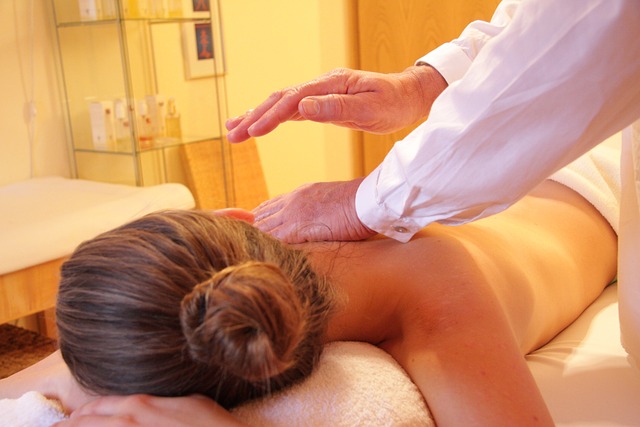In Kansas, recognizing red flags like inappropriate comments, excessive fees, unprofessional behavior, and poor hygiene is crucial for safe massage therapy. The Kansas Board of Healing Arts regulates practices, offering legal protections against physical or emotional abuse. Clients should trust their instincts and report any exploitation to local law enforcement or specialized massage abuse law firms in Kansas. Documenting incidents and consulting these firms ensures accountability and protects rights against misconduct or sexual harassment. Consulting reviews, certifications, and recommendations from trusted sources aids in finding trustworthy therapists, minimizing risks of massage abuse.
In the soothing embrace of a massage, it’s easy to forget that red flags can pop up just like any other setting. This guide arms Kansas massage clients with knowledge about recognizing potential signs of abuse or misconduct during therapy sessions. From understanding legal protections offered by Kansas law firms specializing in massage abuse cases to learning how to spot physical and emotional cues, this resource ensures you have the power to protect yourself. Find reliable therapists and know your rights – a vital step towards a therapeutic experience free from harm.
Understanding Red Flags in Massage Settings

Recognizing potential red flags is an essential aspect of ensuring a safe and therapeutic massage experience in Kansas. While many massage sessions are relaxing and beneficial, it’s crucial to be aware of signs that may indicate inappropriate or harmful behavior from your massage therapist. Red flags can range from professional misconduct to potential physical abuse, making it vital for clients to trust their instincts and take action if something feels amiss.
In the state of Kansas, massage therapy is regulated by the Kansas Board of Healing Arts, which sets standards for practice and ensures consumer protection. Familiarizing yourself with these guidelines can help you identify suspicious activities. Red flags might include a therapist who makes inappropriate comments or advances, demands excessive fees or tips, exhibits unprofessional behavior, or fails to maintain proper hygiene. If you encounter any of these issues, it’s advisable to leave the session immediately and consider consulting a massage abuse law firm in Kansas for guidance on your next steps.
Legal Protections for Massage Clients in Kansas

In Kansas, there are robust legal protections in place to safeguard massage clients from potential abuse or misconduct. The state’s laws are designed to ensure a safe and professional environment for all individuals seeking therapeutic services. If you experience any form of massage abuse or harassment during a treatment session, it’s crucial to know that you have rights and options.
Massage therapy establishments and practitioners in Kansas must adhere to strict regulations, including obtaining proper licensing and consent from clients. Legal action can be taken against those who violate these guidelines, offering protection to clients. In cases of abuse or inappropriate behavior, individuals can reach out to local law enforcement or consult a specialized massage abuse law firm in Kansas for guidance and legal assistance. These measures exist to hold professionals accountable and ensure a safe wellness journey for every client.
Recognizing Physical and Emotional Abuse

Recognizing signs of physical or emotional abuse during a massage is crucial for clients in Kansas. While massages are meant to be relaxing and rejuvenating, any form of manipulation or coercion by the therapist can be an indication of malicious intent. Physical abuse might include unexpected or painful pressure points, marks after the session, or even forced sexual contact. It’s essential to trust your instincts; if something feels off, it likely is.
Emotional abuse, often subtle yet damaging, may manifest as a therapist making inappropriate comments, trying to manipulate your feelings, or pressuring you into services you’re uncomfortable with. Massage abuse law firms in Kansas highlight that clients have rights, and any form of manipulation or exploitation should be reported. Staying informed and being vigilant can help protect against such scenarios, ensuring that massage sessions remain safe and therapeutic experiences.
Your Rights: Reporting Massage Therapy Misconduct

In Kansas, clients have certain rights when it comes to receiving massage therapy services. If you experience any form of misconduct or abuse during a massage session, it’s important to be aware of your options and legal protections. Massage abuse can include inappropriate physical contact, sexual harassment, or any behavior that makes you feel uncomfortable or unsafe.
Reporting such incidents is crucial in ensuring accountability and preventing future occurrences. You can document the details of the incident, including dates, locations, and descriptions of the inappropriate conduct. Then, consider reaching out to local law enforcement or reputable massage abuse law firms in Kansas for guidance and support. These entities are equipped to handle such cases and can help you understand your rights and take appropriate legal action if necessary.
Finding Reliable Massage Therapists in Kansas

Finding reputable and reliable massage therapists is essential for a positive and safe experience in Kansas. With an increasing number of massage establishments, it’s crucial to know how to discern between professionals and potential sources of harm. One effective strategy is to check with local massage abuse law firms or advocacy groups that can provide guidance on licensed therapists and offer resources to protect clients’ rights.
Reputation and reviews play a significant role in this process. Clients should encourage open conversations about certifications, experience, and any specialized training. Additionally, seeking recommendations from trusted sources like friends or healthcare professionals can help narrow down the search for qualified therapists who adhere to ethical standards and legal requirements, thus minimizing risks associated with massage abuse.






